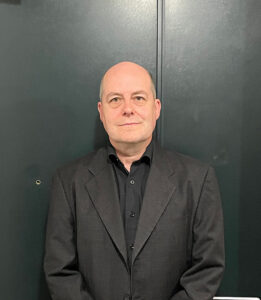News
お知らせ
YMCA ACT
Derek's interview
How did you come to Japan?
Well, my wife is Japanese and after several years of living and working in Ireland, she decided she wanted to return home to Yokohama. Naturally, I came with her.While I miss my family and friends in Dublin, I enjoy my life here in Japan.
How did you become an English teacher?
When I was younger I really wanted to travel and experience life in other countries. Teaching English seemed like the ideal job if I wanted to work abroad so I studied TEFL and became a qualified English teacher. My first job was in Spain way back in 1989. I enjoyed the work and I loved living in Spain.
After a few years in Spain I worked in several countries(UK, Romania, Czechoslovakia, Russia, and of course, Ireland.) before ending up in Japan.
How did you start teaching at the YMCA?
I wasn't very happy at the first school I worked for in Japan. I won't mention it's name but its focus was very much on making money. Students were just customers and the experience of teaching there was very poor. So I quit and looked around for a school that cared more for its students.
I was attracted to the YMCA partly because of its NGO status. It wasn't just about the money and there seemed to be a better relationship between staff, teachers and students.
What do Japanese students need to communicate in English?
As I said, I've taught in many countries and I've taught students from many countries. I suppose the thing that stands out with Japanese students is that they can sometimes be a bit timid when it comes to expressing themselves. So it is very important for me to make sure the classroom is a place where students feel supported and feel safe to express themselves without anxiety.
When students have confidence in the teacher and their classmates they are more likely to take risks and speak up without worrying about making mistakes. This is vital. Making mistakes is a natural part of the learning process. If you don't speak you won't make any mistakes but neither will you make any progress.
What is your strength in teaching English?
I suppose one answer is that I am adaptable as a teacher. Over the years I have had to adapt to changes in materials and teaching methods. As research improves our understanding of how people learn languages, textbooks and approaches to teaching have changed. I've always tried to keep up with the latest ideas in TEFL and tried to incorporate them into my lessons. There have also been massive changes in the technology available to teachers and students .It's important to find ways to exploit these advances. Recently, the pandemic has forced many lessons online and it has been really interesting adapting my lessons to this new format.
How do you want your students to become?
the ultimate goal is to make myself redundant. I want the students to no longer need me.
To this end I try to encourage the students to become more autonomous. They need to motivate themselves, they need to become more self-aware as learners, knowing their strengths and weaknesses.
They should always look for opportunities outside of the classroom to use their English.
Derek先生担当クラス
<英会話>
・PWA(水) 13:00-14:40
・UFM(金) 10:00-11:40
・UFA(金) 13:00-14:40
・USM(土) 10:00-11:40
・ISA(土)15:00-16:40
その他
・プライベートレッスン

